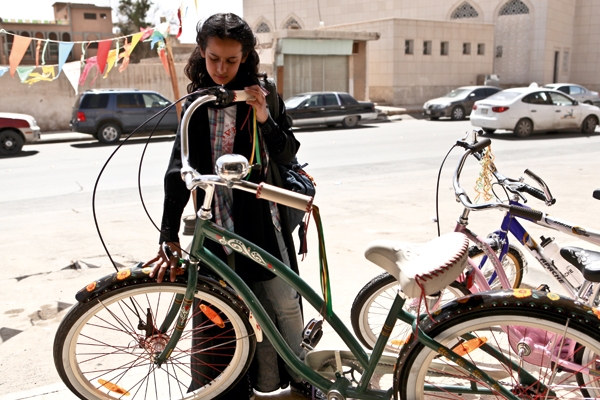Wadjda is the first feature-length film to come out of Saudi Arabia, and was shot by the country’s first female director, and although people will talk about how it breaks boundaries and how pioneering it is, that’s not what you most need to know. What you most need to know is that it’s fascinating, involving, moving, an entirely excellent film in its own right and, therefore, rather unlike The World’s End, which isn’t. It also has a few good jokes in it, which is rather unlike The World’s End, too. And it treats women as worth more than a quick shag in a toilet, which The World’s End doesn’t, just so you know.
The story is a seemingly simple one: Wadjda is a ten-year-old girl living in Riyadh whose ambition is to buy a bicycle so she can race her friend, a boy, Abdullah. It’s that simple, on the surface, but Haifaa Al-Mansour (the director, and also writer) gently plays with it so we understand a little of what it’s like to live as a woman in such an oppressive regime. Wadjda (Waad Mohammed) is great. She is spirited and wryly subversive, listens to loud foreign music and wears forbidden sneakers under her abaya. Wadjda yearns for a bike like nothing else, but her mother refuses to buy her one as bikes are frowned upon for females, as they are thought to compromise virtue. Her mother has her own problems anyway. Her husband, Wadjda’s father, is on the brink of taking a second wife plus there is the daily frustration of not being able to get anywhere without a man to drive her. (It’s tantamount to being a prisoner.) Wadjda tries various ways to earn money and eventually decides to enter a school Qu’ran-reciting competition, with its cash prize, much to the surprise of her strict headmistress.







Comments
Join the debate for just £1 a month
Be part of the conversation with other Spectator readers by getting your first three months for £3.
UNLOCK ACCESS Just £1 a monthAlready a subscriber? Log in